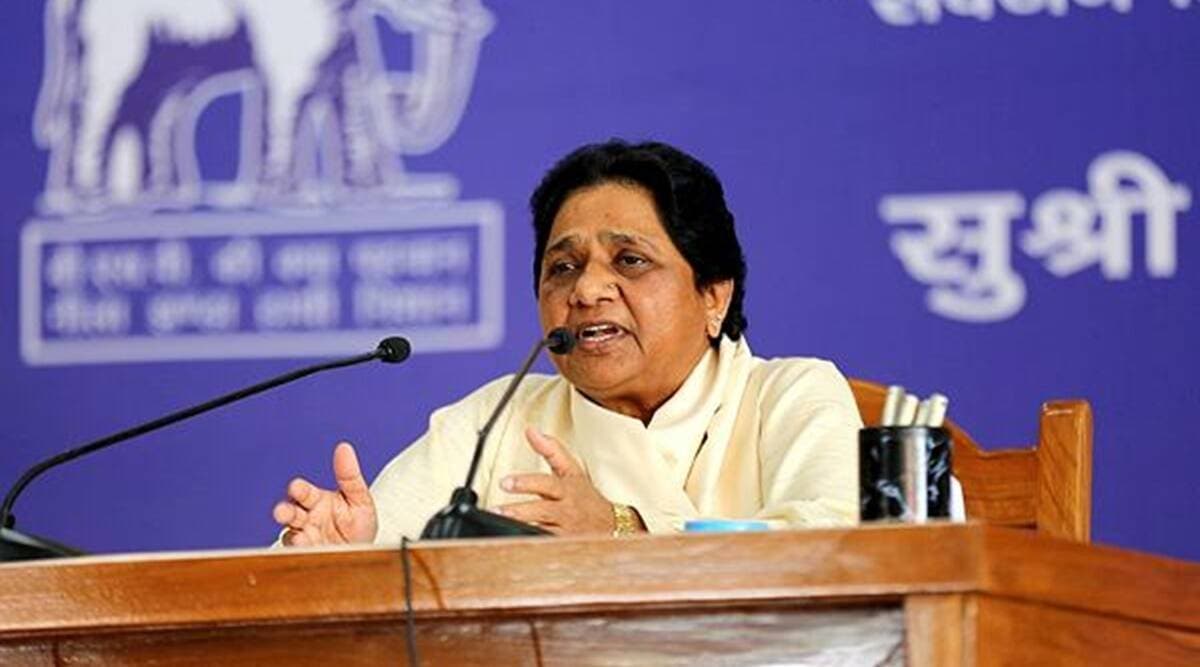On Wednesday, when Mayawati kicks off her election campaign in Agra, amid rumours and intense speculation over her party’s strategy and prospects, many will hang on to every word of hers to assess which way the BSP leans or whether she would stay neutral and keep her options open.
With the party that once dominated UP’s political scene now increasingly becoming a fringe player, the chatter on the ground is all about whether Mayawati, a four-time Chief Minister, will fight to retain her party’s hold over the Dalit votes or prepare the ground for the BJP to return to power in Uttar Pradesh.

While die-hard supporters of Mayawati maintain that “Behenji” will be the kingmaker post counting day on March 10, a section of the Jatavs, her core supporters, appear unsure. It remains to be seen whether they will end up shifting their loyalty either to the BJP or to the SP-RLD alliance.
“On February 2, Behenji will give us some clarity,” said Sarvesh Kumar, a 52-year-old labourer in a leather factory in Agra. Like Kumar, several Jatavs are puzzled at Mayawati’s low-key campaign.
“For those of us who had great faith in Mayawatiji and the BSP, this is disappointing. I have been hearing rumours that she has struck a deal with the BJP in many constituencies. That got many in our community to decide that they would support other parties. But our youngsters are disillusioned with the Yogi Adityanath government, so some say we should support the SP,” said Biresh Kumar, a tailor in Rajawati Chauraha in Kasganj.
Jatavs form over 50 per cent of the Scheduled Caste communities in the state, with Dhobis, Pasis, Koris,Valmikis, Dhanuks, Gonds and Katiks, who are spread across the state, making up the rest and forming a potent political force. Of the 403 seats in the Assembly, 84 are reserved for SCs. In 2017, the BJP won 70 of those and in 2012, the SP, which won with a majority, won 58 of the 84. When it won a majority in 2007, the BSP had managed 62 of the total SC seats. These seats, thus, hold the key to power in UP.
The BSP, which enjoys an overwhelming support among Dalits, especially the Jatavs, had contested 403 seats but won only 19 in 2017. But its vote share stood at 22.23 per cent.
Story continues below this ad
Anil Kumar, who runs a shop in Agra, points out that law and order and the condition of roads were “much better” during Mayawati’s regime (2007-2012). “The leather industry employs many from the lower castes, but this government increased the tax on leather goods from 5% to 12%. It obviously hurt them and they are shifting their loyalty to other parties. But with the BSP seen to be under the BJP’s thumb, the SP is an option,” he said.
However, Badri Narayan, author and professor at Allahabad’s Govind Ballabh Pant Social Science Institute, said Jatavs transferring their votes to SP or BJP is a “local phenomenon.”
“In and around Agra and some parts of eastern UP, BJP has been working very intensely. Its decision to elevate Baby Rani Maurya and to field her from Agra Rural has helped the BJP split Dalit votes. But overall, the Jatavs will remain with BSP only,” he said.
Gauri Shankar, a journalist in Tilsai Kala village, is confident that Mayawati, despite her silence so far, will emerge as the kingmaker. “The BSP will win enough seats and it will be a hung Assembly. Then it will be the kingmaker and form a deal with the BJP,” predicts Shankar.
Story continues below this ad
Piyush, a teacher in Agra, blames the media for “neglecting BSP”. “I think the BSP will end up as the kingmaker. If so, it will either be a BJP government or BSP government. It is unlikely that Mayawati won’t stake claim for the top post if it’s a coalition government,” Piyush said, explaining that the BJP “is in trouble because of the growing discontent among traders and Brahmins”.
Many of them, however, do not hide their resentment against the government in the state and at the Centre.
“Yeh log bolte hain garibi hata rahe hain… lekin yeh garib ko hata rahe hain (they say they are eradicating poverty, but they are getting rid of the poor),” said Sarvesh Kumar, a labourer in a leather factory, frustrated over the pay cuts, job loss and the price rise.
Dheeraj, a resident of Tilsai Kala, a village in Kasganj, says he voted for the BJP in 2017, but is now disillusioned. A plumber who used to work in the NCR area, he was forced to return to his village after he lost his job during the pandemic. “On top of that, the price of cooking gas is too much for us to afford,” he said.
Story continues below this ad
Vikram Kumar, a 29-year-old worker who too works in a leather factory, is angry that the government is spending “too much money on advertisements to project the faces of Yogi and Modi, but it does not have money to help the poor who suffered during the lockdown”.
Jeetu, who works in a private company, says, “The weaker sections want a chief minister who will listen to our issues. We don’t need a CM who shows us dreams and does jumla. We want a CM who can provide us jobs, get our children a good education.” Jeetu adds his salary was reduced from Rs 35,000 a month to Rs 12,000 during the pandemic.

































